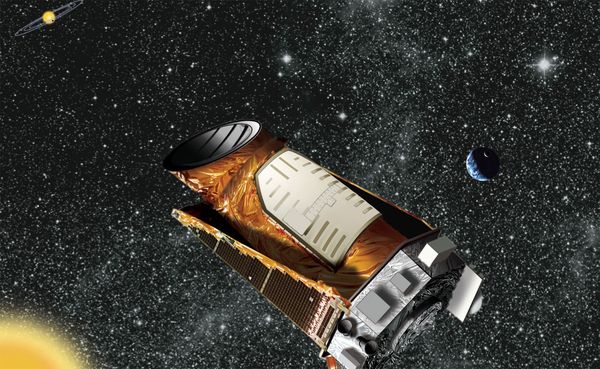The Kepler spacecraft will observe the same patch of sky for years in an effort to discover planets by the slight dimming as they pass in front of their parent stars. Having been launched in March last year, it confirmed its ability to detect planets by detecting a known planet a few months later.

Now it has been announced that Kepler has discovered five new planets. They are all large planets, one about the size of Neptune and the others larger than Jupiter, that orbit very close to their parent stars with orbital periods of only a few days and are extremely hot, with surface temperatures ranging from 1200 to 1600 degrees Celsius. Since they orbit around their parent stars so quickly, Kepler was able to observe the dimming of the light from the stars enough times that it can be confirmed that they are indeed planets. Discovering planets that are more like our own Earth, with much longer orbital periods that last months or years, is going to take many more years of observations.
There also seems to be an odd rumor about the observation of planet-like objects being hotter than their parent stars. If they were planets, then this shouldn’t be possible. Another possibility is that they are white dwarfs, except they appear to be too big to be white dwarfs, either. If this rumor happens to be true and not some sort of miscommunication, then it looks like we are going to learn something very surprising about white dwarfs or discover an entirely new type of cosmic object out there.